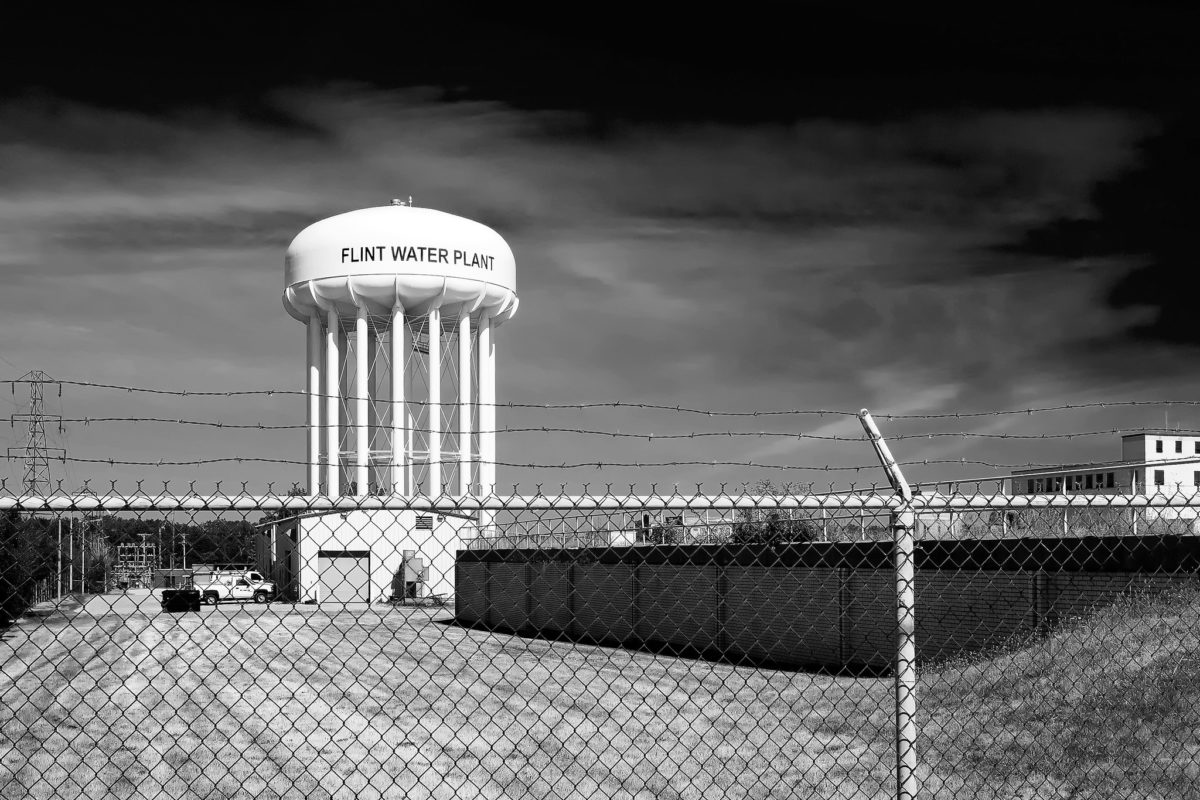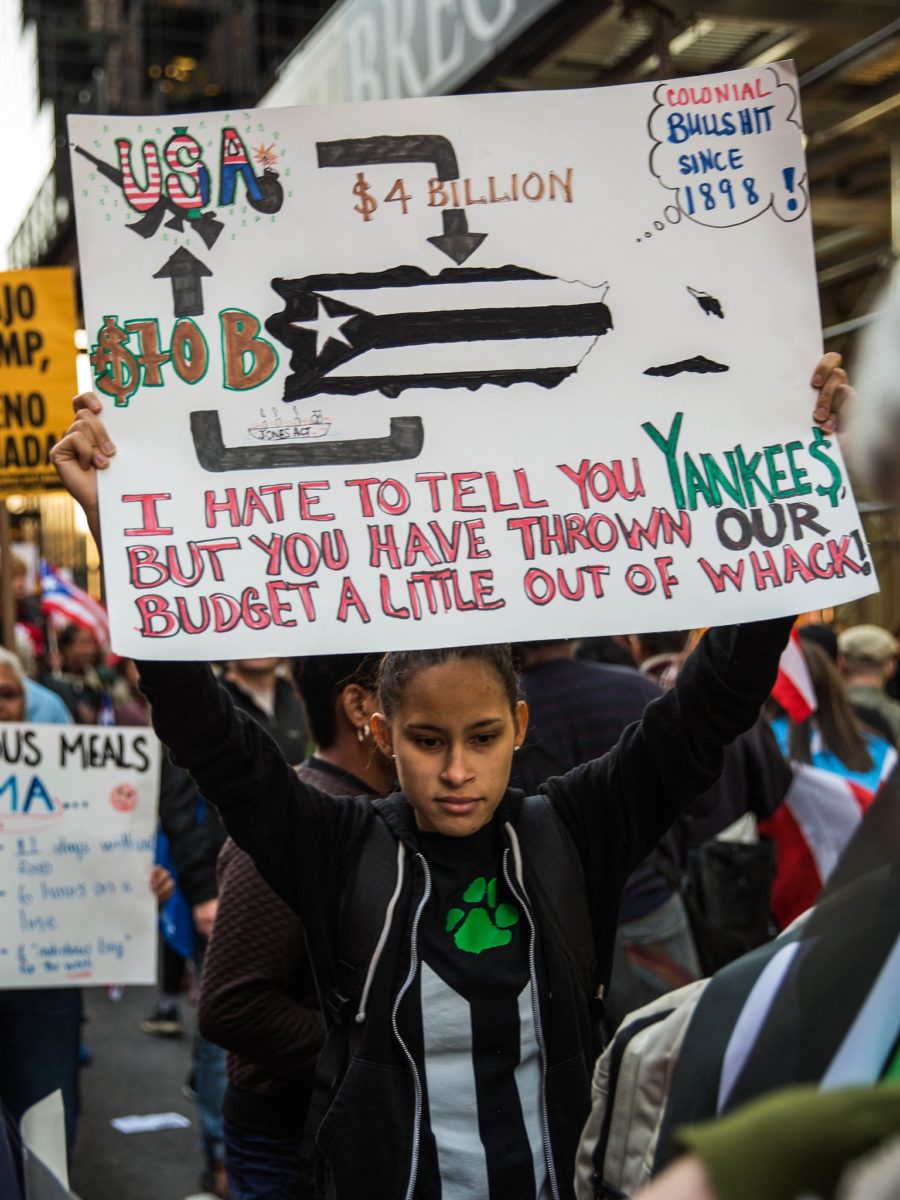Demands for self-determination during times of crisis are growing.
Protests rocked Puerto Rico in 2019. A core demand of the protests: local self-determination. After the island was hit by a financial crisis, the United States responded by suspending what little local democratic control the island enjoyed over its own finances. It did this by instituting an eight-member Fiscal Oversight Management Board, known as “La Junta,” that has essential veto powers over the island’s laws. In response, a popular movement has placed local democracy at the top of its list of demands.
Today, around the world, we exist in crisis.
The climate. Algae blooms. Droughts. Species extinction. Hurricanes. Fire.
Inequality. The economy. Cuts to public services. Recessions.
That is why ideological responses to “crisis” are extremely important to examine, develop, and confront, when necessary. Local democracy, and the right to self-government, are at the core of these debates.
When it comes to financial crises, the elite have cultivated a body of legal thought that argues crisis justifies a suspension of local democracy, or a limiting of its scope and power.
Suspending Local Democracy
When it comes to financial crises, the elite have cultivated a body of legal thought that argues crisis—when local, state, or federal governments experience financial shock or hardship—justifies a suspension of local democracy, or a limiting of its scope and power.
We are seeing this play out in real time.
Crisis in Michigan
Following the Great Recession of 2007/8, city budgets across the nation took a hit, their revenue dried up, and states cut funding to local governments. In Michigan, some municipalities risked defaulting on their debt. Detroit went bankrupt.
This financial hardship could easily be blamed on the state government’s refusal to equitably distribute resources within the state, or the byproduct of historic discrimination against African American communities. However, the State of Michigan’s response was to use the financial crisis to justify total suspension of local democracy through an “Emergency Manager Law” in 2011. Seven municipalities and three school districts, including the governments of Detroit and Flint, fell under dictatorship.
The impacts have been devastating.

Flint Water Crisis is ongoing Explored by George Thomas, Flickr Creative Commons: flic.kr/p/LevsAP
Most notoriously was Flint, Michigan. Flint’s government was suspended by the State of Michigan. The governor-appointed “emergency manager” decided, unilaterally, to switch the city’s drinking water source. Flint residents had been relying on Detroit’s reputable water system. Now they were forced to draw their water from the polluted Flint River. The “manager’s” actions led to the humanitarian water crisis now known as the Flint Water Crisis.
Crisis in Puerto Rico
In Puerto Rico, when a man-made financial crisis hit the island, Congress decided to suspend the democratic control of the elected government through the Puerto Rico Oversight, Management, and Economic Stability Act of 2016 (PROMESA). Puerto Ricans were already living under colony status, subordinate to the United States. However, the United States chose to blame democracy for the crisis.
Throughout the past few years, Puerto Rican demonstrators have repeatedly called for the dissolution of the United States’ Fiscal Oversight Management Board, and a restoration of local democracy.

4N3A5170 by Working Families Party, Flickr Creative Commons: flic.kr/p/ZvWPQU
The examples of Michigan and Puerto Rico offer a glimpse into growing efforts to suspend democracy during times of crisis.
Dictatorship Under Dillon’s Rule
In the book Democracy in Chains, Nancy MacLean explains:
“In 2011, the [Koch-funded Mackinac Center] pushed hard for legislation that would allow the [Michigan] governor to take over all aspects of local government in any community facing a ‘financial emergency’ and hand control over to an emergency manager….‘It’s dictatorship, plain and simple,’ one city commissioner said of the new system.”
When an advocacy group sued Michigan to overturn the state’s takeover of local governments, the State of Michigan cited “Dillon’s Rule” legal precedent to justify its power grab.
The suspension of democracy during times of financial crisis has been justified by theories of “emergency management,” which rests on the logic of Dillon’s Rule. John Forrest Dillon was a judge from the 1800s. He argued that there is no amount of local democracy and self-determination that centralized governments (in this case the U.S. Congress and the State of Michigan) cannot take away. Why? Because cities are “children of the state.”
Nothing could be further from the truth. We are a self-governing people, with the right to decide what happens in the places where we live. We must develop our own pro-democracy ideologies of crisis. We need theories that breathe democracy into our responses to crisis – not strip them away. If we want democracy, we have no other choice.
Coming Together
People often come together during times of crisis, whether natural disasters or economic downturns. Occupy saw hundreds of thousands gather in response to the Great Recession. Occupy Sandy formed citizen-led disaster response to Hurricane Sandy. In Puerto Rico, people came together after Hurricane Maria to provide basic services in the face of the failure of the Federal Emergency Management Agency. And in 2019, protests rocked the island with a core demand: self-determination and an end to corruption.
People know what’s best for their communities. As crises grow, it is time we articulate visions for more democracy – not less. Today is when we need democracy the most.
CELDF has partnered with hundreds of communities across the country to assert the right of local community self-government, and to elevate those rights above state preemption and the claimed “rights” of corporations. Together, we’re building a movement. Join us.
